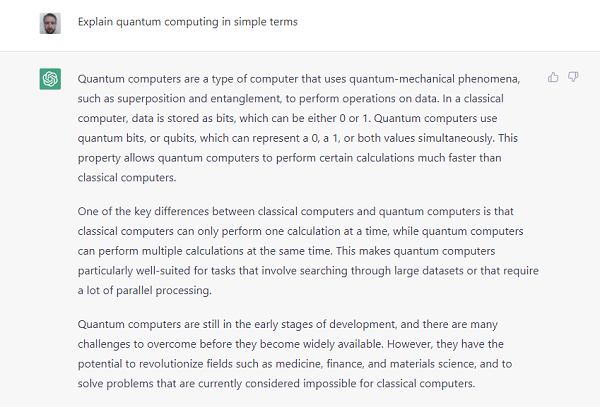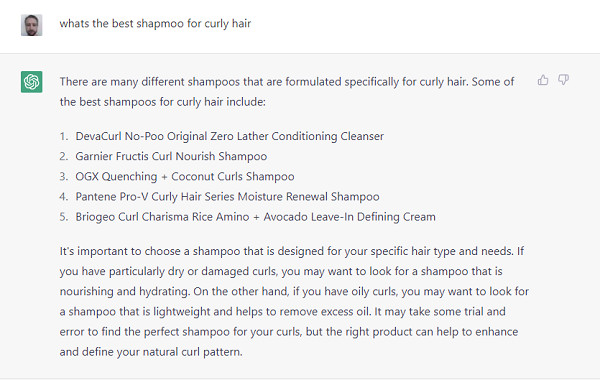Microsoft’s Bing could soon be back in the game, with the tech giant planning to integrate AI-powered ChatGPT into its search engine, which would then enable users to conduct conversational searches in the app.

ChatGPT has quickly become the poster child of the AI shift, with the system able to answer complex queries, as well as follow-up questions, in plain English responses, quickly and (mostly) accurately.
That’s sparked concern about the impact that it could have on academic institutions, with the system able to pump out essays and summaries of virtually any text that it can access. But a more practical value for the process could be in search, and enabling people to simply ask questions – like ‘what should I pack for a holiday in Australia in June?’ – and have ChatGPT provide an overview, including a full list that you can use to plan and action.
As such, it makes sense for search engines to be eying its potential, with Microsoft, which is an investor in ChatGPT creator OpenAI, being the first to jump on the trending tool, in an effort to integrate conversational queries into its search engine.
Of course, Google is also considering its options on this front. The search giant, which has been developing its own AI models for years, has said that it won’t be looking to integrate conversational AI as yet due to the potential of ‘reputational risk’, with the results produced by the initial ChatGPT research preview amplifying both inaccuracies and biases at times.
Those flaws are still being worked out, and as more people try the ChatGPT system, more of these types of errors are being corrected. ChatGPT is also restricted in the data that it can reference (OpenAI notes that it has limited knowledge of events after 2021), while the shift to a different mode of search could have major impacts on Google’s current business model, which may be another reason why the company is hesitant to move too quickly on this front.
Essentially, moving to a conversational, ‘Q and A’ type search and discovery process could provide a better user experience, but it would also reduce the amount of web traffic driven by search providers. With ChatGPT, there’s little need to actually go to the website itself, as the system provides the full answer for you. Which can be extremely handy, but with no referral link, the only site that benefits from this interaction is ChatGPT itself.
That’ll reduce ad revenue, as you won’t have top search results to highlight, as such. And unless paid results can be built into ChatGPT responses – which, in itself, seems like a risky proposition – that could force a significant change in search engine revenue models, and SEO processes.
I mean, how do you optimize your website for ChatGPT response? Right now, Google ranks websites based on its own complex algorithmic formula, which takes into account thousands of data points to highlight the best, most relevant search matches for each query.
But if ChatGPT becomes the prevailing search system, how will it rank results moving forward?
People will still ask it questions like ‘what’s the best shampoo for curly hair?’, but the algorithmic matching behind those results will be impacted by the reduction in direct traffic as a result of ChatGPT showing you the results in-line, as opposed to driving you towards relevant website links.

The system could force a major change in thinking around search optimization, while also likely causing a widespread drop in website traffic overall, as the entire discovery process will often be confined to a ChatGPT chain (i.e. follow-up questions to the above could be around price, availability, all asked as follow-up questions, as opposed to visiting another website).
The implications are big, and it’ll be interesting to see how Microsoft looks to merge ChatGPT functionality into Bing – and how Google then responds.
According to The Verge, Microsoft is hoping to launch the integration before the end of March.



